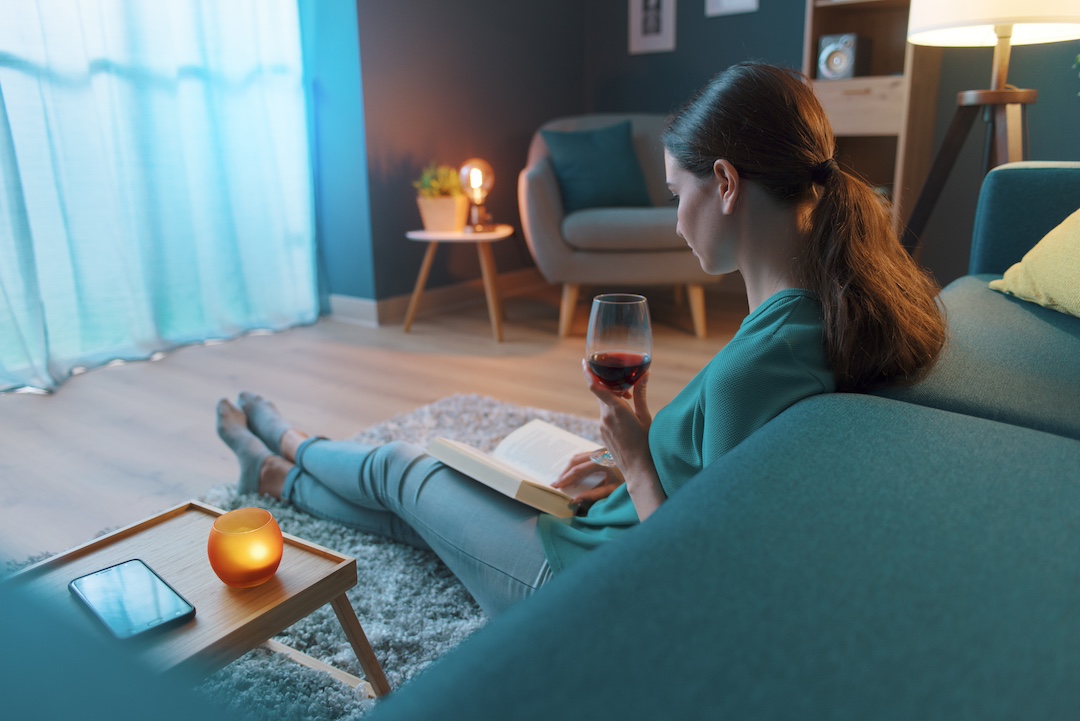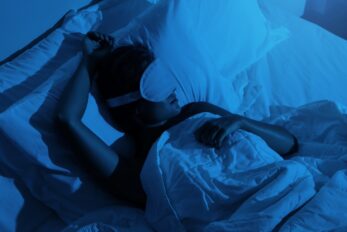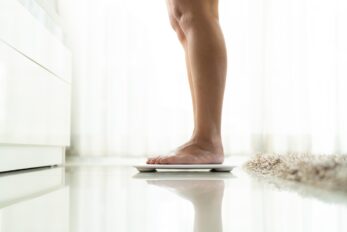In a fast-paced and stress-filled world, many of us turn to a nightcap to unwind and relax before bedtime. The initial effects of that drink may cause a warm, drowsy feeling, however, the impact on our sleep is a little more complex than that. Let’s look at the relationship between alcohol and sleep to find out if that evening glass of wine (or two) is affecting the quality of your rest.
The Sedative Effect of Alcohol:
At first glance, alcohol seems to have a sedative effect, making it easier for us to fall asleep. The impact on the central nervous system leads to a reduction in brain activity and an overall calming sensation. However, this initial sedative effect is only part of the story.
Disrupted Sleep:
While alcohol may help you fall asleep faster, it significantly disrupts our normal sleep stages, or sleep architecture. Research shows that alcohol interferes with the natural progression of sleep cycles, particularly during the second half of the night. This disruption can lead to fragmented and restless sleep, diminishing the overall restorative quality of your rest.
The two main types of sleep and the associated stages are:
- Non-Rapid Eye Movement (NREM) Sleep:
-
-
- Stage 1 (N1): Light sleep that occurs as you transition from wakefulness to sleep. Usually lasting several minutes.
- Stage 2 (N2): Slightly deeper sleep which comprises a significant portion of the total sleep time.
-
- Rapid Eye Movement (REM) Sleep:
-
- Stage 3 (N3): Deep sleep or slow-wave sleep (SWS). It is often referred to as the “delta sleep” stage. This stage is essential for physical restoration and recovery.
- REM Sleep: Dreaming typically occurs during REM sleep. It is characterized by rapid eye movements, increased brain activity, and vivid dreams. The body experiences muscle atonia, meaning voluntary muscles are temporarily paralyzed to prevent acting out dreams.
These stages make up a sleep cycle and these cycles repeat several times throughout the night. The amount of time spent in each stage can vary, with a greater amount of REM sleep occurring in later sleep cycles.
Impact on REM (Rapid Eye Movement) Sleep:
REM sleep is a crucial aspect of the sleep cycle. This is when dreaming occurs, and important cognitive processes take place. Alcohol has been shown to suppress REM sleep during the first half of the night, which could impact memory consolidation and emotional regulation. This reduction in REM sleep might contribute to feelings of grogginess and fatigue upon waking the morning after having a few drinks.
Increased Risk of Sleep Disorders:
Regular consumption of alcohol before bedtime has been linked to an increased risk of developing sleep disorders. Conditions such as insomnia and sleep apnea may be aggravated by alcohol, further complicating the sleep picture for those of us who already struggle with these issues.
Disruption of Circadian Rhythms:
Alcohol can also interfere with circadian rhythms, the body’s internal clock that regulates sleep-wake cycles. This disruption can lead to irregular sleep patterns, making it challenging to establish a consistent and restful nightly routine.
The Importance of Moderation:
While the relationship between alcohol and sleep is complex, one thing is certain, moderation is key. Occasional, light alcohol consumption may have minimal impact on sleep quality for most of us. However, habitual or heavy drinking is more likely to lead to sleep disturbances and long-term negative consequences on our overall health.
Tips for Better Sleep:
- Limit Alcohol Intake: If you choose to consume alcohol, do so in moderation, and try to avoid drinking close to bedtime.
- Establish a Sleep Routine: Create a consistent bedtime routine to signal to your body that it’s time to wind down and prepare for sleep.
- Create a Sleep-Friendly Environment: Ensure your bedroom is ready for sleep by keeping it dark, quiet, and cool.
- Stay Hydrated: Balance your alcohol intake with water to prevent dehydration, which can contribute to sleep disturbances.
Conclusion:
In the quest for a good night’s rest, understanding the intricate relationship between alcohol and sleep is important. While a nightcap might seem like a relaxing evening ritual, its impact on sleep quality requires more careful consideration. Striking a balance between enjoying occasional drinks and prioritizing healthy sleep habits is crucial for overall well-being and healthy vitality.
If you have questions about sleep hygiene, overcoming sleep disorders, or need personalized advice on improving your sleep, we’re here to help.
Book a call with a member of our Virtual Care Team






